The Bathers released ‘Summer Lightning’, their first new album of sorts in over twenty years, last year. It consisted of reworkings of old tracks, along with various rarities, from their 1987 debut album, ‘Unusual Places to Die’, which originally came out on Go! Discs Records, an indie offshoot of Universal Records. Singer-songwriter Chris Thomson - and Late Night From Glasgow, the record company involved – originally planned to simply reissue ‘Unusual Places to Die’, but when they ran into contractual problems they decided to make ‘Summer Lightning’ their temporary focus instead. 2023 promises to be an important year for Glasgow-based pianist, guitarist and vocalist Chris Thomson. The Bathers’ long-awaited, much-delayed seventh studio album of new material,’Sirenesque’, will finally come out in the Spring. We will also see hopefully an additional LP of fresh Bathers’ material, and there will also be an intensive set of reissues. With the legal issues surrounding it finally sorted out, ‘Unusual Places to Die’, which has been long deleted. will also resurface. ‘Trapped and Unwrapped’, the solitary 1984 album of Thomson’s first band Friends Again, is also being re-released on vinyl by Last Night From Glasgow, and there are plans to reissue again on vinyl The Bathers’ 1999 sixth album, ‘Pandemonia’, which as originally released on Wrasse Records. Thomson is also contributing tracks to his former Friends Again bandmate Paul McGeechan's orchestral project Starless's as-yet-untitled third album. The Bathers were formed by Thomson in early 1985, after the collapse of Friends Again, which, as well as McGeechan (keyboards). had also featured James Grant (guitar) and Stuart Kerr (drums), all three of whom went on to play in Love and Money. While never attracting mainstream success, The Bathers have attracted a strong cult following, especially in their native Scotland. Thomson’s beautiful Tom Waits-style vocals, his tales of all intoxicating, feverish love, and often ethereal music have won him a loyal following. The other Bathers’ albums are ‘Sweet Deceit’ (Island Records, 1990), and the strings-laden ‘Lagoon Blues’ (1993), ‘Sunpowder (1995) and ‘Kelvingrove Baby’ (1997), which all came out on the Hamburg-based label Marina Records and, released on vinyl for the first time in late 2020, have come to be collectively known as ‘the Marina trilogy’. In our second interview with him, Pennyblackmusic spoke to Chris Thomson with the initial aim of promoting a gig that we are doing with The Bathers at The Wee Red Bar in the Edinburgh College of Art on the 25th March. The gig, which is their first Edinburgh show in six years, to Chris Thomson’s genuine and heartfelt surprise sold out in a matter of days. We spoke him about ‘Summer Lightning’, the reissue of ‘Trapped and Unwrapped’, and the forthcoming release of ‘Sirenesque’. PB: You have recorded two albums’ worth of new material. How much of that is going to make the final cut of ‘Sirenesque’? CHRIS THOMSON: I have never been particularly into double albums. It would make better sense for me to get the main ‘Sirenesque’ album out, and then within the next six months or so to release a second batch of stuff. Having waited so long, it would be nice to pick up momentum a bit (Laughs) and to get a couple of records out within a year. There will also be another Starless record, which will be coming out on Last Night From Glasgow. Paul McGeechan cracked the whip there, and said, “What have you got (Laughs)?” We had a few ideas knocking around there already, and so I sat down and from trying to finish a couple of songs I ended up finishing six songs from fragments of ideas or from scratch. So, I have handed over those tracks to Paul, and he has homed in on three of them, which he thinks will work on the next Starless record. PB: Who will be releasing ‘Sirenesque’? CT: We are still firming that up. Marina have first refusal, but I am hoping that Last Night From Glasgow might also be involved. PB: You have played regularly with big versions of the Bathers in the past, often with seven or eight people on stage, but in recent times the live line-ups have just featured yourself, Hazel Morrison and Callum McNair. Why have you decided to strip things back? Is it just easier to do? CT: Yeah, the main thing is that on a practical level it is much, much easier to have three people available or four. It is more economically viable. If the budget is tight, you can make sure that everyone gets something. To do shows that have the big band – it was nine at one point when we brought the brass guys in – is tough. You feel that you are asking favours of people all the time to make it work. It is not just the gig on the night though. it is the preparation, and the stuff which goes on behind the scenes. Not only does it make the trio more manageable in terms of paying people, but Callum and Hazel, who have been at the core of the band with myself for many years, have got the back knowledge of the material. There is not much they have to learn. PB: Hazel has been the drummer and percussionist in the band since ‘Lagoon Blues’ and Callum has been on guitar since ‘Kelvingrove Baby’. How did you first become involved with them? CT: In Hazel’s case, it was through Iain White’s wife. Iain is the guy who played the violin on the Marina trilogy albums. We had to do a Mayfest gig and didn’t have a drummer. We had used people like James Locke, who was in The Chimes and co-produced ‘Kelvingrove Baby’, or Gordon Wilson who was in Love and Money. They always had other things on the go. I was looking for a permanent drummer, and Iain’s wife said, “I know someone from my friends in the Royal Conservatoire of Scotland”, and Hazel was just finishing up her student percussion degree there, and she came in and played, and that was 1993, and she has been with us ever since. Callum was an old, old friend of James Locke. I met Callum at James’ wedding and we immediately got on like a house on fire, and he started to tour with the ‘Kelvingrove Baby’ line-up of the band after that. That was in the 1990s. There is a strong friendship. He is a great guy and a very talented musician. PB: ‘Summer Lightning’ came out in the summer. You originally planned to just reissue ’Unusual Places to Die’, How did it morph into ‘Summer Lightning’? CT: It is a bit of a saga but the bottom line is that ‘Unusual Places to Die’is still going to come out. There was a massive problem just identifying who owned what. Last Night From Glasgow have licensed a lot of material in recent years, the Bluebells album, the Trashcan Sinatras albums, so it should have been relatively straightforward but something was lost in the great vaults of Universal and its subsidiaries. Island Records kept being mentioned, and, as far as I knew,that particular record had never been associated with island, but it had somehow been transferred across to them, maybe at around the same time as ‘Sweet Deceit’, the next Bathers record, which was on Island, so there was a massive confusion with the paperwork. Last Night From Glasgow through sheer perseverance have very recently sorted it out to our satisfaction, and they can basically green light the manufacturing now. ‘Unusual Places to Die’ will come out at some point in 2023. With ‘Summer Lightning, the idea was to harvest some unused tracks. The title track itself was a half-written demo from the 1980s, and we finished it off and that gave me the impetus. Like so many things, like the recent Marina Trilogy vinyl reissues. you start looking over what you have got, and you get sucked into the excitement of creating something new from whatever the starting point is, and that is what happened with ‘Summer Lightning’. I revisited songs that I was very fond of. I think everything on it was recorded or remixed or was a hybrid in some cases of a new vocal on top of old backing tracks. It was a chance to do different versions of the songs and to finish off certain things that were hovering around. It has worked out well. PB: ‘Absentee Caress’ and ‘Yellow Buskin’, both of which appear on the CD version of ‘Summer Lightning’, are pretty obscure and have been not heard much before. CT: I really like those two tracks. ‘Yellow Buskin’ was the bonus track on the ‘Fancy Dress’ single but only on the 12” and was very 80s in sound. We re-recorded it for ‘Summer Lightning’. It is recognisably the same song, but we re-recorded it from scratch and I feel that it is very different. ‘Absentee Caress is the only track in which everything about it was done at the time, and all I had was a cassette of it. Paul McGeechan worked wonders with the mastering. It turned out the cassette was out of phase, so he corrected that. PB: Why did you decide to change the name of ‘Isn’t She Shining?’ to ‘The Mandarins’? CT: The original demo was called ‘The Mandarins’. The version of ‘Unusual Places to Die’ had different verse lyrics which didn’t include" the mandarins." We re-recorded it with its initial lyrics for ‘Summer Lightning’, so it just felt right to rename it. When ‘Unusual Places to Die’ is reissued, it will be ‘Isn’t She Shining?’ again. PB: The cover for ‘Summer Lightning’ is spectacular. Where was the photo of the statues on the cover taken? CT: I was a little bit naughty in that I was at an art exhibition in Amsterdam the year before lockdown. Those statues were part of a display, and I took a few shots. It just seemed to work. I dropped in the background, the artwork. It just came together. I did check with someone that it was okay to use them, andi t apparently was. PB: The inside photo on the sleeve of ‘Summer Lightning’ shows you standing beside what looks like some kind of war memorial. CT: It is actually a fountain called the Doulton Fountain. It was highly susceptible to being vandalised at the time that picture was taken in late ‘87/early’88, and it was in quite a ruinous state. Many of the statues on it were headless and had lost arms, but cut forward to about ten or fifteen years ago, and it was heavily restored at the cost of about four million quid and it was moved beside the People’s Palace at Glasgow Green. It had been on the Green but was further down towards the river. They rebuilt it and restored it beautifully. It was built for some international exhibition in Glasgow in around about 1888, and so about a hundred years after that there I was in the ruin of the thing. The happy ending, however, was that it was restored. PB: And there is also a reworked photo on the back sleeve of the photo which appears on the back sleeve of ‘Unusual Places to Die’. CT: The photographer and I went back to the Doulton on a different day. We really liked what we had done on the first session. It might have even been months later, so we went back and we did get quite a few good shots then as well, including that one. PB: To talk about Friends Again, ‘Trapped and Unwrapped’ is getting re-released on vinyl in January. For a band that broke up even before your debut album came out, you are fondly remembered. Does that surprise you? CT : Yes, it does. In fact Paul McGeechan and myself regularly laugh about it. Paul likes to say, “Where was all the love when we were on the go (Laughs)?” We felt that we were getting nowhere fast. I guess that is a lot of the reason why the band broke up, particularly from James Grant’s point of view. He felt that he wanted commercial success. It is very surprising to us that people might be in any way interested all these years later. It is such a long way back. There is even a possibility that we might do a couple of live shows. It would be great fun to play large portions of the album again. PB: We spoke to Paul in 2019 at the time ‘Trapped and Unwrapped’ was reissued on CD by Cherry Red, and he was saying that the drummer Stuart Kerr had vanished. CT: There has been a very recent update on that. He had vanished and Paul had made quite an effort to get hold of him with no luck. He eventually found out that he was living with his partner in the Southside of Glasgow, but that was all, nothing else, but then recently out of the blue Ian Smith from Last Night From Glasgow received a call from an unknown number and this voice said, “Hi. Is that Paul McGeechan?” and Ian went, “No. Can I ask who’s calling?” and the voice went, “It’s Stuart Kerr (Laughs).” Someone had given him the name, and he had obviously confusedly thought that it was Paul that he was calling. Ian put them together and Paul and Stuart had a long chat the other week. He is working in IT and is not drumming. They did touch upon if he would be interested in playing the shows and Stuart said initially, “Yeah. I think that I would” but then he said, “No, I think that it is too much work. I haven’t drummed for ten years,” but it is nice to have heard from him. He even sent a picture and he just looks more or less the same (Laughs). He is still recognisably Stuart. PB: Why do you think that people care still about Friends Again so much and for a band which broke up in 1984? CT: We were just a year or two after the emergence of Aztec Camera and Orange Juice and the Postcard label, and we probably had a certain amount of profile amongst the Scottish/Glaswegian music renaissance. For some people, who were just getting into music, we were a part of their growing up, and that sticks with you. I think the songs are strong though. In a roundabout way we were trying to be poppy and successful, but we always tended to deviate towards doing something a bit more quirky. We were looking to doing something with a bit of depth to it, and in some ways, while we maybe sabotaged our short-term commercial prospects, that perhaps lead to the longevity of the finished product. The main producer Bob Sergeant did a really good job of bringing out some of the strengths of the band, which were rooted in the songwriting and strong playing. Obviously listening to it now you think, “You could do that better,” but part of the appeal of it is its youthful naivety. We all came from very different places. We all had very diverse interests from prog rock through to the Velvets and the Buzzcocks, Joy Division and ELP, Led Zeppelin and the Eagles. It was all a big, massive melting pot. I think we had something quite distinctive through that mixture. PB: Friends Again were very difficult to put into a category. Do you think that was something that went for or against them? CT: I think that it went against us in terms of a massive breakthrough. We were poppy enough to have a chance of maybe a hit record which was obviously what the record company wanted. but we were maybe too tuneful to appear to the more hardcore. cultish fanbase. We weren’t as extreme as, say, The Fall and bands that were really pushing the boundaries at that end of the spectrum. We didn’t fit comfortably into any of the niches. The same thing probably applies to what I have done with The Bathers. It probably fits into that category. There are elements of traditional songwriting and there are some quite weird, arty elements. It can be quite unsettling for people. How do you pigeonhole it? From a marketing point of view, it is easier if something is one type of thing. It is easier to sell. PB: Bob Sergeant produced eight of the twelve tracks on ‘Trapped and Unwrapped’. He was apparently a perfectionist and a tough taskmaster, but Paul has said that he was a massive influence on his career. Do you feel the same? CT: One of my main regrets about the Friends Again project is that Bob did do a very, very good job but the record company somewhat snatched the project away from him towards the end of it. ‘Trapped and Unwrapped’ was recorded over at least six months in separate sessions, but there was one really big, long block of sessions in RAK in London, which was a great, old school studio, with a big room and great gear lying around, including beautiful pianos and organs. The bulk of the album was done there, but when the ‘State of Art’ single was not a massive hit the record company started to mess about. “Let’s get so and so to remix this. It’s not punchy enough.” They overdid it in the way they remixed things, particularly with the brass arrangements and they put some funny delays and things on it. It was probably the sort of stuff that does not matter to the casual listener, but to me it was annoying, and I know that Bob was mightily cheesed off when they cut him out. The things that I liked the most about that record is that it has that classic Bob Sergeant stamp to it. There is a kind of warmth to it with really good instruments recorded in a really old school way, and that is something that has appealed to me for the rest of my career. It has stuck with me as a kind of benchmark. I learned a lot of things from watching Bob putting the best version together, doing x amount of vocals and then creating a performance from that, getting the best from each take. He did the same with the guitars as well. James was screaming for mercy by the end, but Bob got some absolutely amazing results from him. James, of course, was then and is a massive talent, but it shows what a taskmaster Bob was that James was made to repeat things. He always had the ability to be very sort of precise and in time and in tune, but Bob really put him through his paces. There were moments with the rhythm section in which Bob said, “Okay, if you can’t get this right – it is taking too long – we are going to have to get session players.” That was real pressure for what was essentially a bunch of young guys in their late teens and early twenties and suddenly in the big London studio and told that you have to deliver and deliver now.. Whether that was totally a good thing or not is debatable, but it was in some ways and it installed in all of us a great sense of discipline when it came to studio work. PB: What are your memories of working with Tom Verlaine on ‘Swallows in the Rain’ on 'Trapped and Unwrapped'? That must have been quite surreal. CT: Yeah, it was, especially when he wandered into the North London rehearsal room that we were in just behind King’s Cross Station. I was talking to an American friend recently who is like myself a big fan of Television. He was saying, “What was he like?” and the truth was that he was quite a prickly character, which I have heard from other sources as well. It was at the same time really exciting though, because we loved ‘Marquee Moon’ and ‘Adventure’, the Television albums, so much. He was a real night owl. He wanted to start late and he often wanted to work into the very small hours. That was quite hard on the studio engineers. You go into it thinking that you are going to be friends for life or something, but he definitely had a real professional distance. I suppose that he was roughly only ten years older than us, but when you are 21 or 22 and with the amount of experience that he had it might as well have been thirty years. In what was quite a telling moment the tape-op, the youngest studio assistant, had a David Bowie ‘Scary Monsters’ T-shirt on As a talking point, I said perhaps naively, “Oh, did you know that Tom’s song, ‘Kingdom Come’, was covered on that album?” and Tom was just sitting there, and we said, “What did you make of the cover version?” and he in a very droll way said, “Oh, a bit Vegas for me.” Now I know what he was saying, but back then I didn’t quite understand and whether it was a good thing or a bad thing. Now I realise that he was being mildly scathing about it. We thought naively that he was going to be our friend, but he must have thought that we were a bunch of kids (Laughs). PB: You were hoping to put out a vinyl version of ‘Pandemonia’. Is that going to happen still? CT: Yeah, absolutely. It is a long album, and, despite what I said earlier, I think that is one thatl is going to have to be a double album on vinyl. The version which I have got up on Spotify is called ‘The Director’s Cut’, and it will be very close to that. I am sure that we can make a few slight improvements, but it is a very strong set of songs. Having brought ‘SIrenesque’ to a 99% finish, there is not a chance that I am going to take the foot off the pedal now. Lovely as these distractions are, it is getting the new stuff out, which has to be the priority. PB: So. what is the structure for 2023? CT: ‘Trapped and Unwrapped’ will be out in January. ‘Unusual Places’ will be out in April/May. ‘Sirenesque’ should be the Spring as well, and ‘Pandemonia’ later in the year. The follow-up album will come out towards the end of the year or possibly the start of 2024, and somewhere in the middle of that we will also do the new Starless album. PB: Thank you.
Band Links:-
https://www.facebook.com/kelvingrovia/https://twitter.com/thebathersoffi1
https://thebathers.bandcamp.com/
Play in YouTube:-
Have a Listen:-
Picture Gallery:-
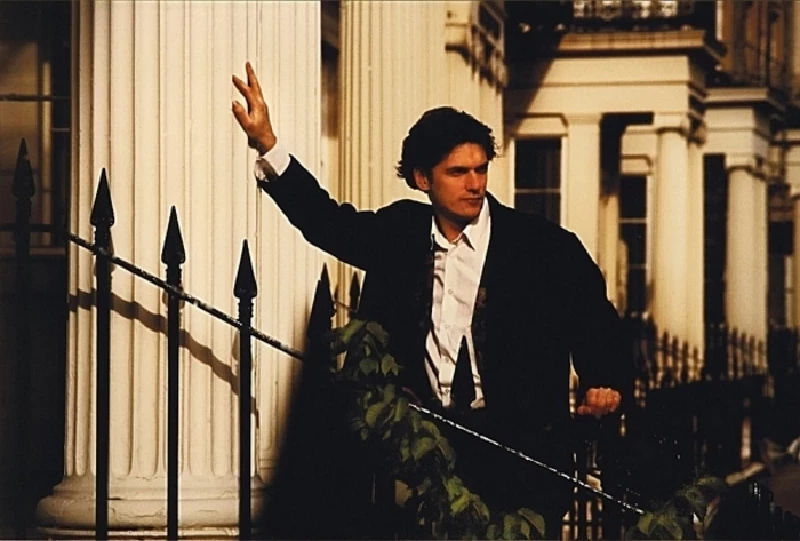
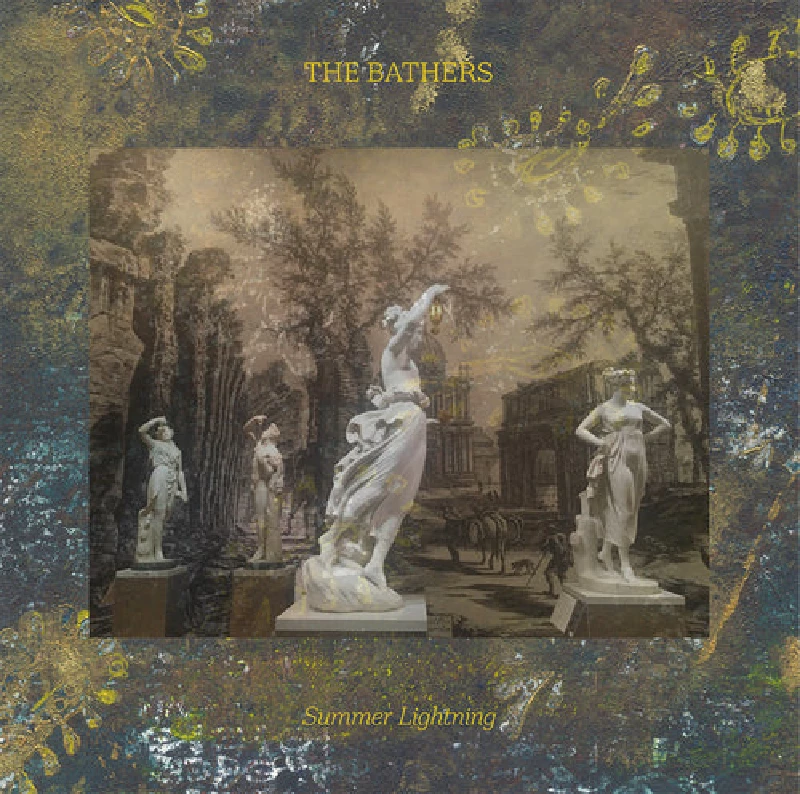
Visitor Comments:- |
| 3447 Posted By: jimmy smith, dumbarton on 09 Jan 2023 |
|
missing word/s?
CT: One of my main regrets about the Friends Again project is that Bob did do a very, very good, but the record company somewhat snatched the project away from him towards
|
intro
In our second interview with him, we speak to Chrris Thomson from Glasgow band The Bathers about thieir forthcoming first album of new material in over twenty years 'Sirenesque', and the reissue of his early band Friends Again's 1984 only album, 'Trapped and Unwrapped'.
interviews |
|
Interview with Chris Thomson (2024) |
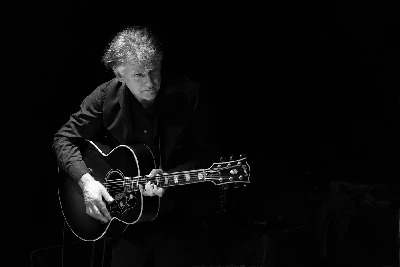
|
| Chris Thomson, the frontman with acclaimed Scottish act The Bathers, speaks to John Clarkson about their first album in 24 years,, 'Sirenesque'. |
| Interview (2020) |
profiles |
|
With The Cowboy Mouth, Wee Red Bar, Edinburgh, 14/4/2023 (2023) |
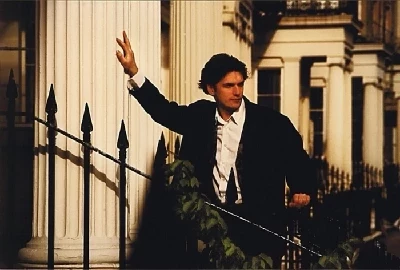
|
| We preview our gig with The Bathers and The Cowboy Mouth at The Wee Red Bar in Edinburgh on the 14th April. |
| With the black watch (acoustic solo) and Stephen McLaren, The Wee Red Bar, 25/3/2022 (2022) |
live reviews |
|
(With Cowboy Mouth and Sugartown), Strathaven Hotel, Strathavan, 17/6/2022 |
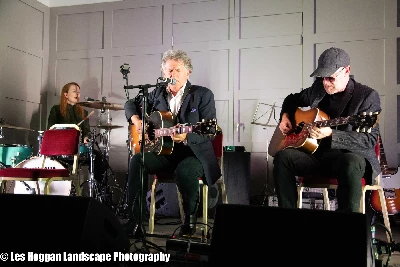
|
| John Clarkson enjoys sets from The Bathers, Cowboy Mouth and Sugartown in the unusual setting of the Strathaven Hotel in South Lanarkshire. |
features |
|
An Introduction and a Profile (2002) |
| In the first of a series of articles, John "Girder" Clarkson profiles some of the more misunderstood bands of recent years. Scotlands 'The Bathers' have often been labeled as pretentious and as a resu |
photography |
|
Photoscapes 2 (2023) |
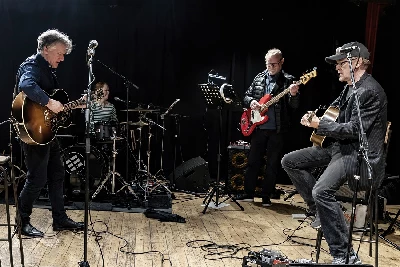
|
| In the second of two galleries Philip Wark photographs The Bathers during their soundcheck at a Penny Black promoted gig at The Wee Red Bar in Edinburgh. |
| Photoscapes 1 (2023) |
soundcloud
most viewed articles
current edition
Screamin' Cheetah Wheelies - Sala Apolo, Barcelona, 29/11/2023 and La Paqui, Madrid, 30/11/2023Anthony Phillips - Interview
Difford and Tilbrook - Difford and Tilbrook
Rain Parade - Interview
Oldfield Youth Club - Interview
Autumn 1904 - Interview
Shaw's Trailer Park - Interview
Cafe No. 9, Sheffield and Grass Roots Venues - Comment
Pete Berwick - ‘Too Wild to Tame’: The story of the Boyzz:
Chris Hludzik - Vinyl Stories
previous editions
Microdisney - The Clock Comes Down the StairsHeavenly - P.U.N.K. Girl EP
World Party - Interview
Michael Lindsay Hogg - Interview
Ain't That Always The Way - Alan Horne After The Sound of Young Scotland 2
Joy Division - The Image That Made Me Weep
Dwina Gibb - Interview
World Party - Interview with Karl Wallinger
Joy Division - The Image That Made Me Weep
Barrie Barlow - Interview
most viewed reviews
current edition
Marika Hackman - Big SighSerious Sam Barrett - A Drop of the Morning Dew
Rod Stewart and Jools Holland - Swing Fever
Loves - True Love: The Most of The Loves
Ian M Bailey - We Live in Strange Times
Autumn 1904 - Tales of Innocence
Paul McCartney and Wings - Band on the Run
Roberta Flack - Lost Takes
Banter - Heroes
Posey Hill - No Clear Place to Fall
Pennyblackmusic Regular Contributors
Adrian Janes
Amanda J. Window
Andrew Twambley
Anthony Dhanendran
Benjamin Howarth
Cila Warncke
Daniel Cressey
Darren Aston
Dastardly
Dave Goodwin
Denzil Watson
Dominic B. Simpson
Eoghan Lyng
Fiona Hutchings
Harry Sherriff
Helen Tipping
Jamie Rowland
John Clarkson
Julie Cruickshank
Kimberly Bright
Lisa Torem
Maarten Schiethart